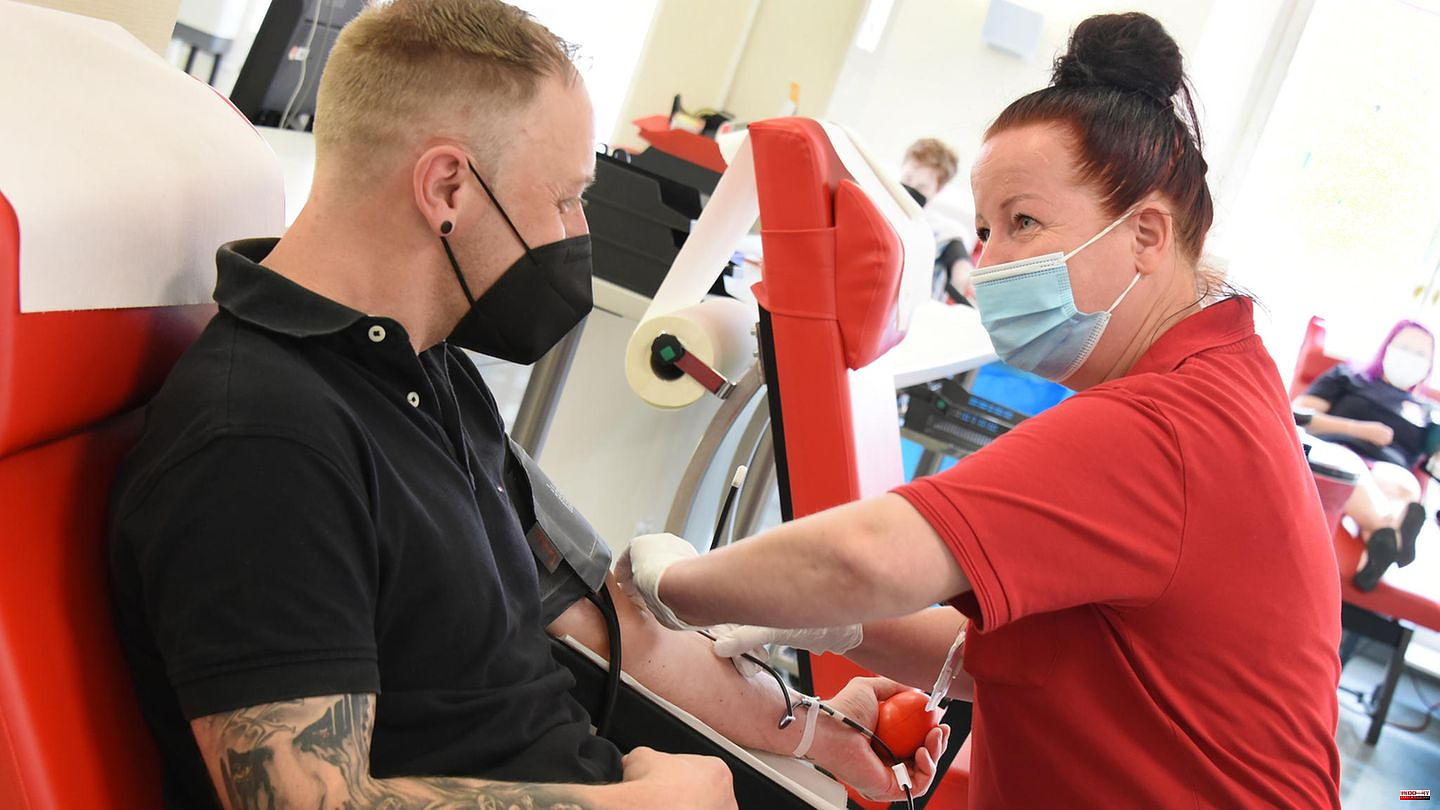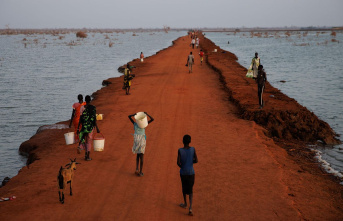A total of 15,000 blood donations are needed every day in Germany - for the treatment of cancer patients, for blood transfusions for heart, stomach and intestinal diseases, complications during childbirth or to treat accident victims.
However, blood products are currently in short supply in Germany. The German Red Cross (DRK) is concerned about the lack of blood reserves in some federal states. The situation in North Rhine-Westphalia, Hesse and Rhineland-Palatinate is particularly critical, as the “SWR” reports.
Actually, the reserves should last for five days. Currently, the existing blood supplies would only suffice for the daily needs of the hospitals. Donors are urgently needed. What donors should know:
One in five Germans has already donated blood, according to a representative study by the digital insurance manager Clark in cooperation with YouGov, in which around 1000 people were interviewed. Among people who have never donated blood, there is a willingness to do so: 25 percent of 18 to 34 year olds can imagine donating blood, among people over the age of 55 the willingness to donate blood for the first time drops to 14 percent. However, almost every fifth person in Germany has never donated blood and cannot imagine doing so in the future.
For almost half of Germans, the most important reason for donating blood is the desire to help the general public. Financial incentives only play a role for 18 percent.
According to the German Red Cross, only three percent of the population donate blood on a regular basis. In order to ensure a sufficient supply of blood preparations in the long term, around six percent would have to donate regularly. The experts are particularly worried about demographic change. Every year around 100,000 active blood donors throughout Germany drop out due to age or illness. On the other hand, the need among older people is increasing.
Especially in summer, when many people are on vacation, blood supplies are regularly running out. In addition, the corona pandemic kept numerous potential donors away. At the beginning of the Corona crisis, blood donations dropped dramatically in places. But the demand also fell because clinics canceled many operations, and the situation was stable again in the meantime. But the number of interventions is now increasing, also because of numerous catch-up operations. According to the DRK blood donation service, there are currently hardly any reserves.
In principle, anyone between the ages of 18 and 68 weighing 50 kilograms or more can donate blood, according to the Federal Center for Health Education (BZgA). The maximum age for a first donation is 60 years. In principle, older people can also be considered if their state of health allows it.
Women may donate blood no more than four times and men no more than six times in a 12-month period. A donor must: wait at least eight weeks between two whole blood donations.
Anyone who has had contact with a person infected with Covid-19 may only donate blood again ten days after contact. After a corona infection with fever, the waiting time after freedom from symptoms is 28 days according to the DRK. During pregnancy and after childbirth, women should temporarily not donate blood. A temporary exclusion also applies after many vaccinations and trips abroad to malaria areas or countries with a risk of hepatitis. It is temporarily not possible to donate after major operations or when taking certain medications. Anyone who has an iron deficiency must not donate blood until the iron reserves have been replenished.
Anyone who is unsure whether he or she is a suitable blood donor can get an initial overview online with the DRK's donation check. The DRK also offers a free hotline for further questions. This can be reached Monday to Friday between 8 a.m. and 5 p.m. on 0800/1194911.
Further information on blood donation from the DRK or the BZgA.
After acupuncture treatments, unless they can be proven to have been carried out in a sterile manner, as well as piercings and tattoos, you have to wait at least four months before the next donation in order to rule out infections with certainty. Waiting periods also apply to people whose sexual behavior may put them at greater risk of transmitting an infectious disease such as hepatitis or HIV.
This applies, for example, to certain pre-existing conditions such as insulin-dependent diabetes, hepatitis or chronic inflammatory diseases.
Anyone who donates blood must first fill out a questionnaire at the blood donation service and go through a medical consultation with a health check. The blood donation itself takes about ten minutes. Around 500 milliliters of blood are taken. After donating blood, donors must: Rest inside the blood donation service for half an hour before going home. When preparing to donate blood, you should drink plenty of fluids – the DRK recommends two liters of water. Also, don't donate blood on an empty stomach.
The day after the blood donation is best approached calmly. Greater physical exertion - such as going to the gym or sauna - should be avoided for a day.
Anyone who donates blood undergoes a small health check. Blood pressure and temperature are measured and the hemoglobin level is determined. If the hemoglobin level is too low, this indicates that a person has too little iron in their blood. After the donation, the blood is tested for infectious diseases such as HIV or syphilis and the blood group is determined. "People who donate blood regularly have a lower risk of suffering a heart attack than people who don't donate blood," says the BZgA. Study results indicate that regular blood donation has a blood pressure-lowering effect in people with high blood pressure.
Anyone who donates blood can receive a so-called expense allowance from the blood donation services. In addition to money, this can also be a voucher or a small gift.
The BZgA offers a list of blood donation services online. By entering the zip code, those willing to donate can find blood donation services in their area.
Sources: BZgA 1, BZgA 2, BZgA 3, DRK FAQ, DRK on Corona, press portal, with material from AFP, SWR












